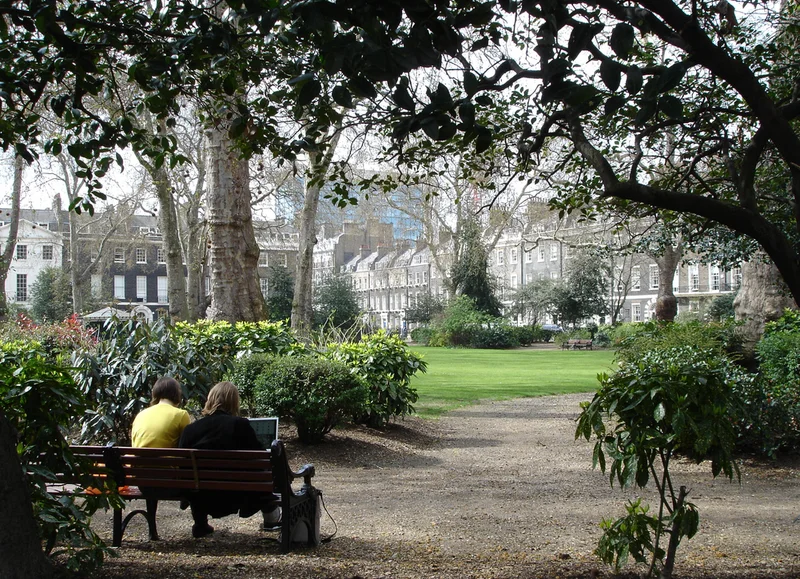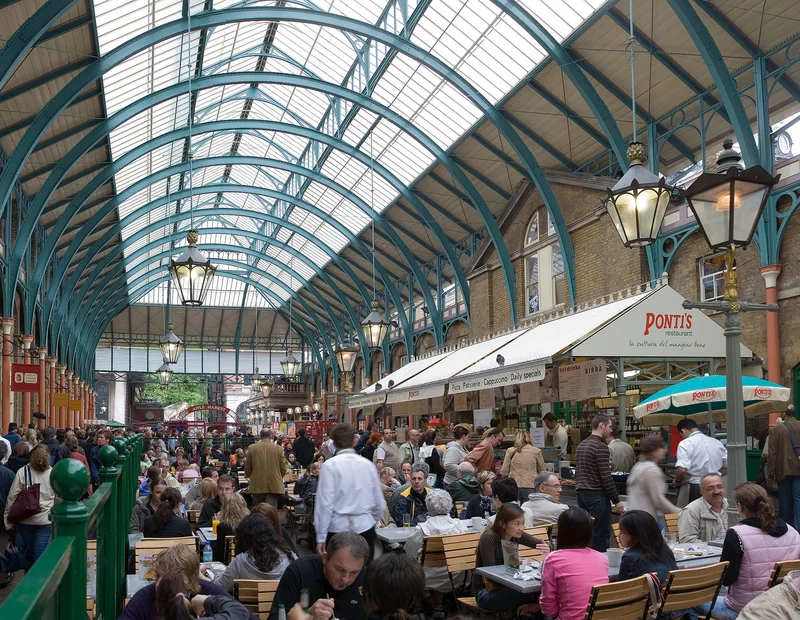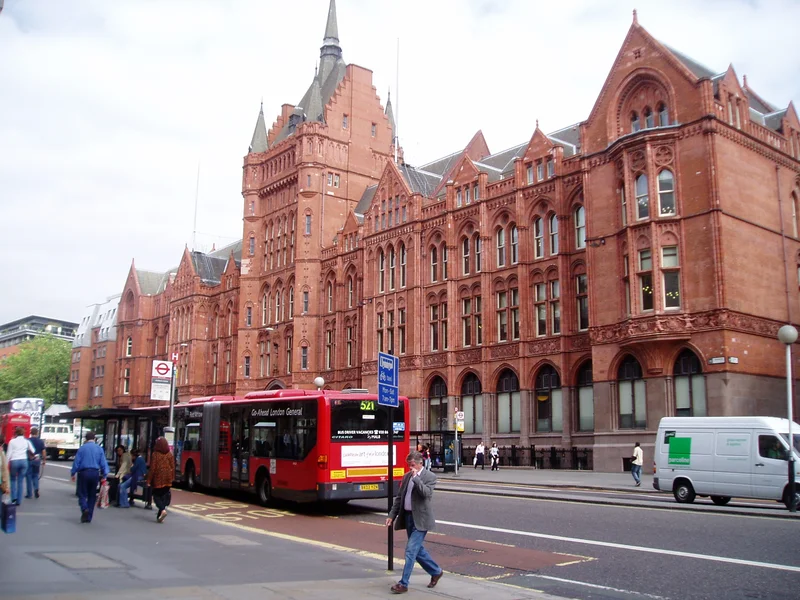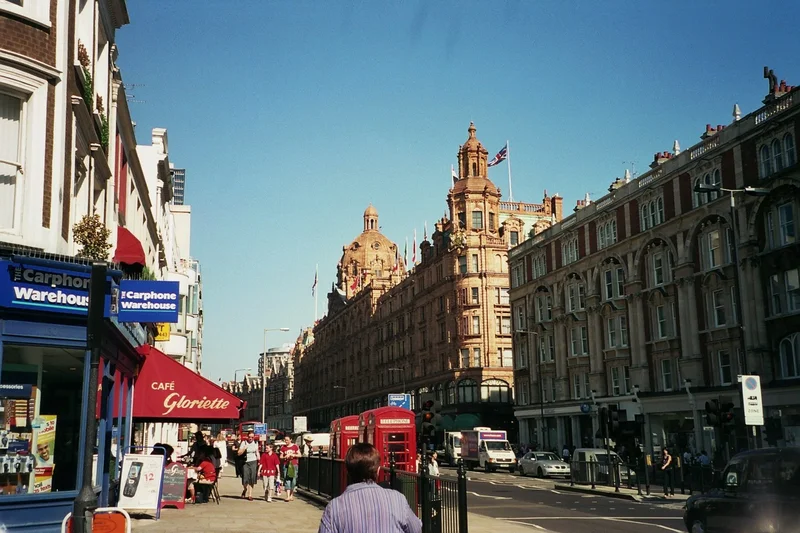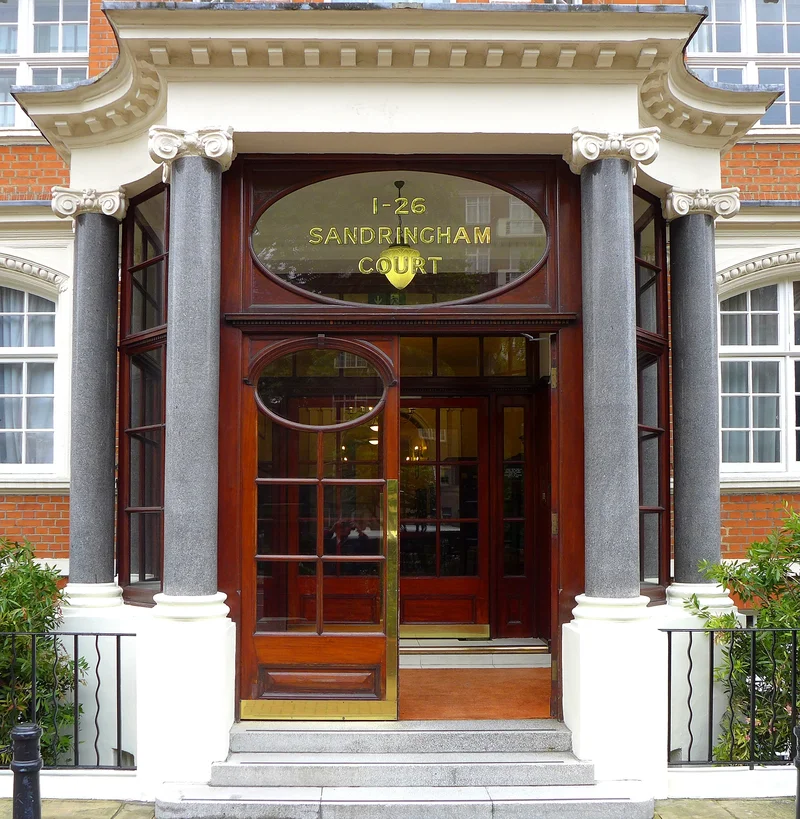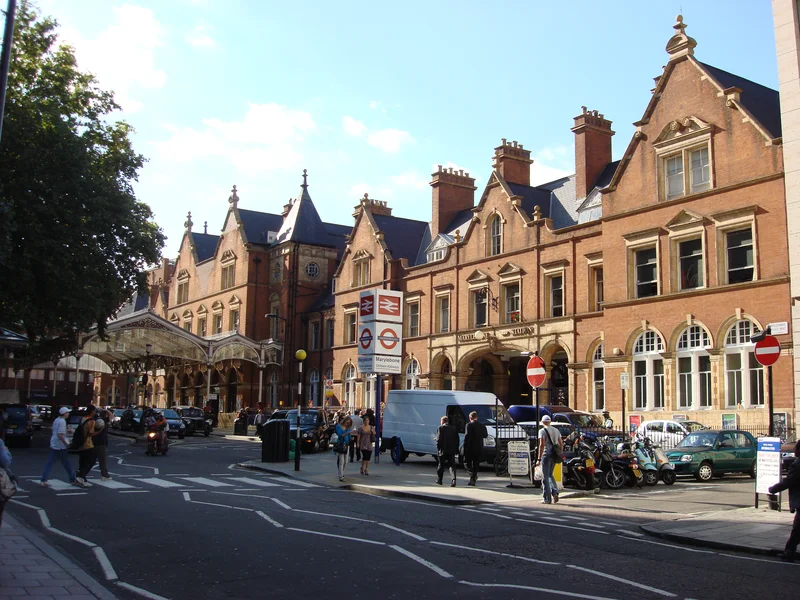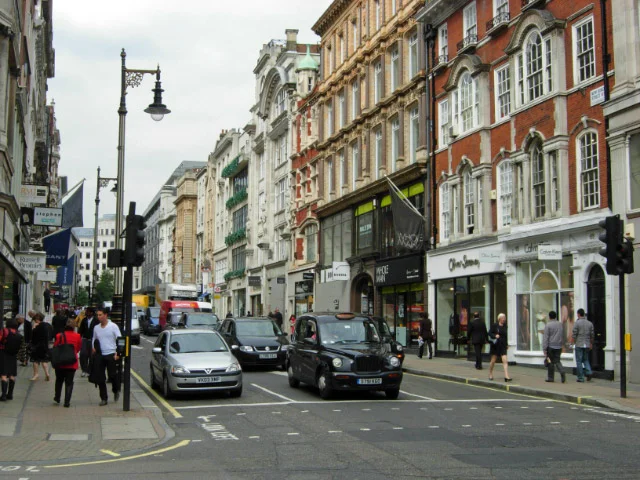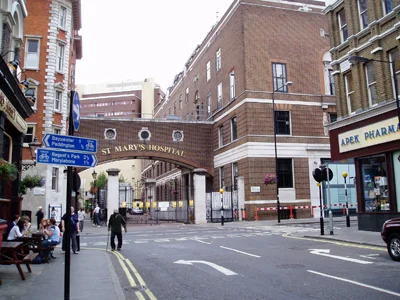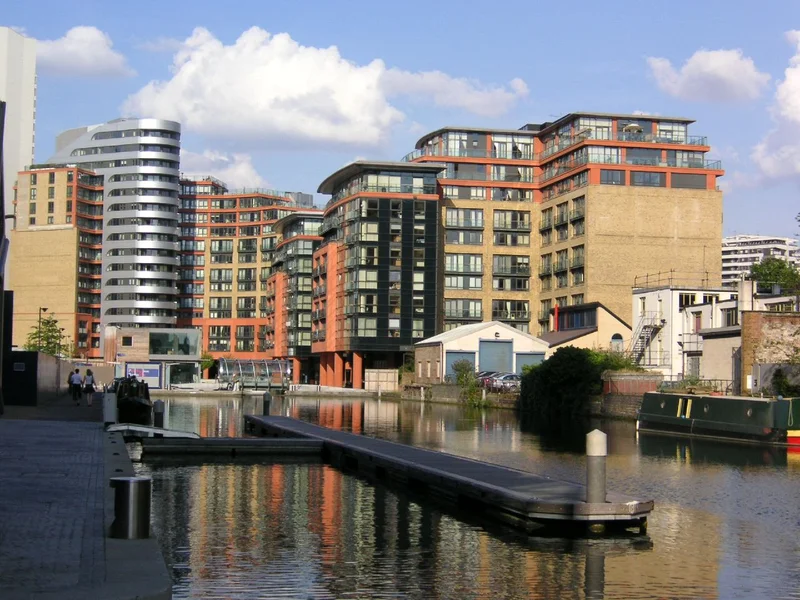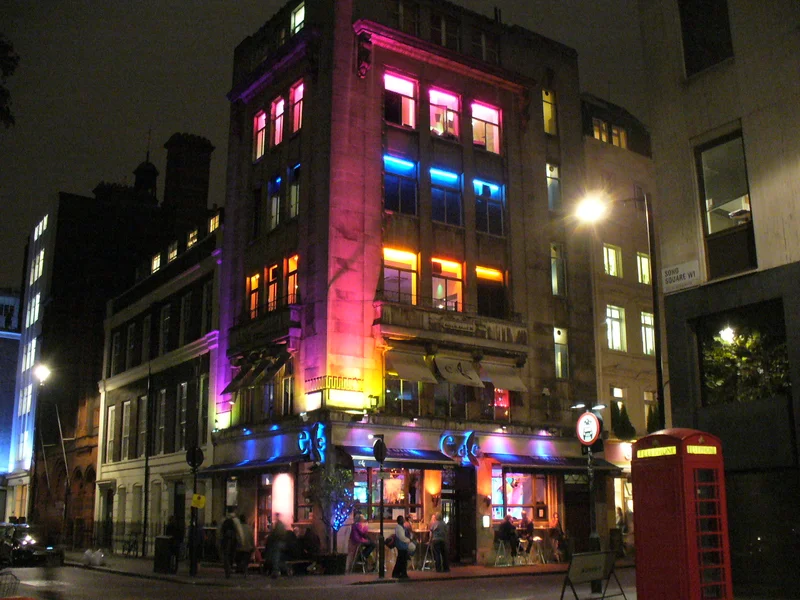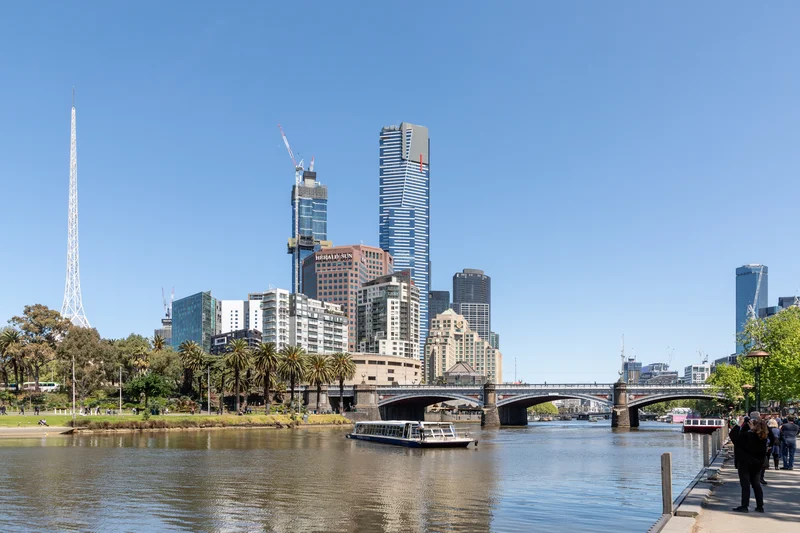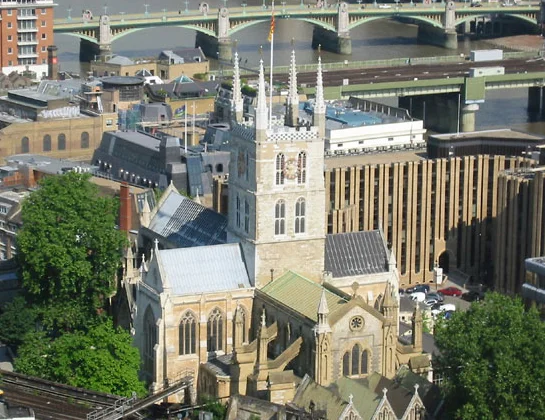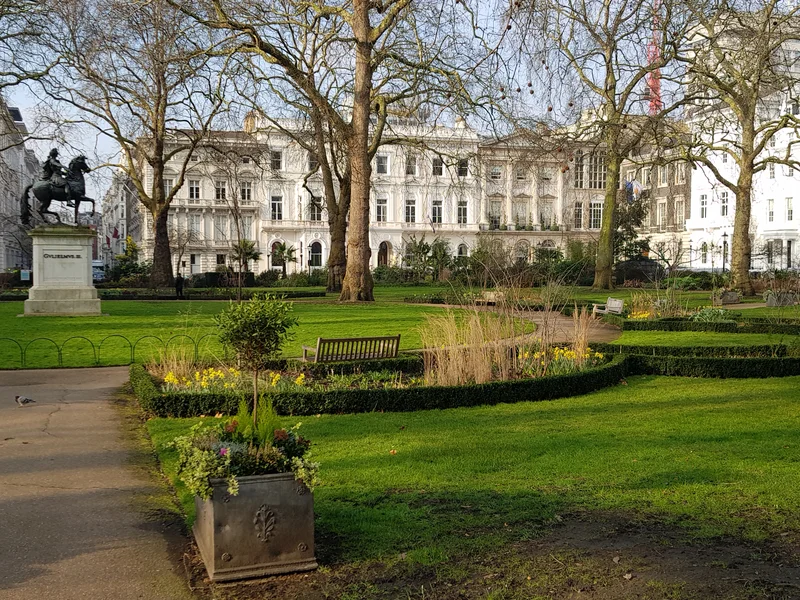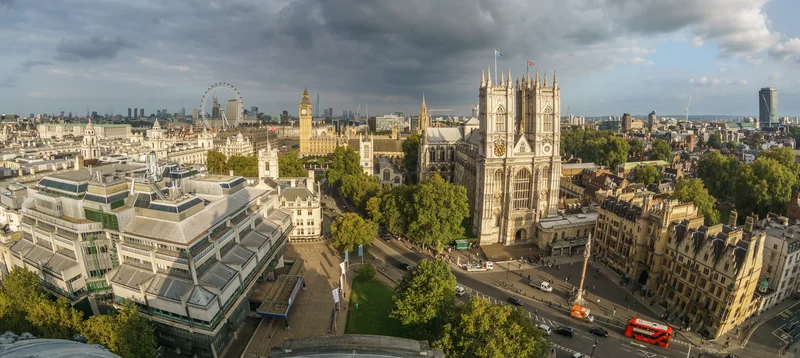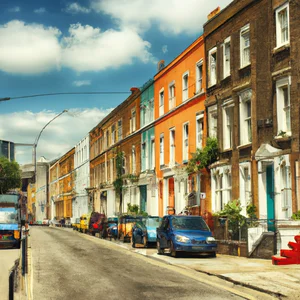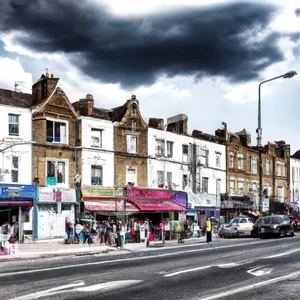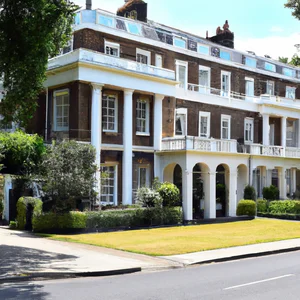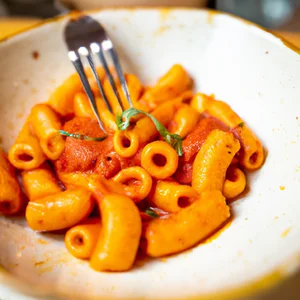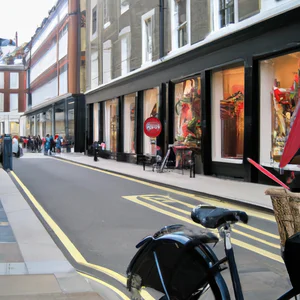Book your experience
Caribbean cuisine in London: Caribbean flavors in the heart of the city
Hi everyone! Today I want to talk to you about something that particularly struck me: Caribbean cuisine in London. It’s truly incredible how, between one skyscraper and another, you can come across restaurants that make you feel as if you were on a white sand beach, with the sun beating down and the scent of the sea in the air.
Do you remember that time I went to try a Jamaican restaurant? I don’t know, maybe it was a Tuesday, but I immediately felt like I was on holiday. I ordered a plate of jerk chicken, and I assure you it was so good I almost started dancing! In short, the flavors of the Caribbean can make you forget the stress of metropolitan life, at least for a while.
And then, let’s talk about spices! That combination of sweet and spicy, it’s like every bite is a feast for the taste buds. I don’t know if it’s ever happened to you, but when you taste a dish like this, you almost feel like you’re traveling. Of course, not all restaurants are the same: some are decidedly more authentic than others and, sometimes, you happen to find a place that seems more like a stall than a restaurant, but which instead surprises you with a flavor that you will never forget .
In fact, I think the great thing about Caribbean cuisine in London is this variety. There are elegant restaurants, with dishes presented like works of art, and then there are those slightly more rustic places, where the atmosphere is super welcoming. Maybe the service isn’t always the best, but who cares, right? The important thing is the food!
In short, if you happen to pass through London and want to venture into the world of Caribbean flavours, don’t miss the opportunity. Maybe even bring a friend, so you can share the experience and, who knows, maybe you’ll want to dance too!
The best Caribbean restaurants in London
A journey through Caribbean flavors
The first time I stepped into a Caribbean restaurant in London, I was greeted by a wave of bright colors and irresistible scents. It was a Saturday afternoon and the “Cotton’s” restaurant in Camden was in full swing: the noise of conversations mixed with that of reggae music booming in the background. As I savored a plate of jerk chicken, marinated in aromatic spices and served with rice and peas, I realized that Caribbean cuisine is not just food, but a cultural experience that unites people and stories.
Restaurants not to be missed
London offers a rich selection of Caribbean restaurants, each with their own unique style. Some of the best include:
- The Rum Kitchen: With locations in Notting Hill and Covent Garden, this venue is famous for its rum-based cocktails and dishes such as goat curry and cod fritters.
- Jerk Shack: Located in Brixton, it is an authentic corner that serves some of the best jerk chicken in the city, cooked according to Jamaican traditions.
- Tasty Jerk: Hidden in the streets of Hackney, Tasty Jerk offers an intimate atmosphere and dishes prepared with fresh, local ingredients.
An insider tip
A little known fact is that many Caribbean restaurants in London offer a “Happy Hour” dedicated to Caribbean cocktails. Don’t miss the opportunity to try a Rum Punch or a Fresh Mint Mojito at discounted prices, often accompanied by traditional tapas.
The cultural bond
The presence of Caribbean cuisine in London is the result of a long history of migration and cultural exchange. In the 1950s and 1960s, many Caribbean people moved to the UK, bringing their culinary traditions with them. Today, these restaurants are a meeting point where not only the food, but also the music, art and culture of the islands are celebrated.
Sustainability and responsibility
Many Caribbean restaurants in London are embracing sustainable practices, choosing local and seasonal ingredients. For example, the “Tasty Jerk” partners with local farmers to reduce environmental impact and support the local economy.
An experience worth trying
If you want an authentic experience, join a “Cooking Class” at one of the Caribbean restaurants to learn how to prepare traditional dishes such as Callaloo or Fish Escovitch. This activity not only enriches your culinary skills but also allows you to interact with Caribbean culture directly.
Myths and misconceptions
A common misconception concerns Caribbean cuisine, which is often reduced to just hot spices. In fact, it offers a wide range of dishes, from the delicate flavors of fresh seafood to sweet recipes such as Banana Pudding, showcasing the diversity of the culinary traditions of the various islands.
A final reflection
As you explore the best Caribbean restaurants in London, ask yourself: how can cuisine unite such different cultures? Each dish tells a story, and each bite is an invitation to discover a world rich in history and flavours. Are you ready to embark on this gastronomic journey?
Discover the typical dishes of the islands
When I first set foot in a Caribbean restaurant in London, I didn’t know exactly what to expect. The air was pervaded by a mix of spices and aromas that seemed to tell stories of distant lands. I sat down, a little skeptical but curious, and ordered a plate of jerk chicken, a classic of Jamaican cuisine. The first forkful revealed an explosion of flavors: the spiciness of allspice, the sweetness of honey and a smokiness that evoked the heat of the Caribbean sun. From that moment, my love for the typical dishes of the islands blossomed.
A journey through flavors
Caribbean restaurants in London offer an authentic window into the islands’ culinary traditions. Dishes such as rice and peas (rice and beans) and callaloo (a kind of tropical spinach) are prepared according to recipes passed down from generation to generation. Don’t miss the opportunity to enjoy a fish escovitch, which combines fried fish with a perfectly balanced crunchy and acidic vegetable sauce.
If you want an authentic experience, I recommend visiting Cottons restaurant, known for its attention to Caribbean traditions. Founded by a Jamaican, this London institution is prized for its fresh ingredients and variety of dishes.
An insider tip
A secret that only true lovers of Caribbean cuisine know is the festival, a sweet and fried side dish that often accompanies savory dishes. Try it next to your jerk chicken for a perfect contrast of flavors; it’s an experience that will make you feel like you’re sitting at a Jamaican table, surrounded by friends and family.
The cultural impact
Caribbean cuisine has a rich and varied history, influenced by several cultures, including African, indigenous and colonial. These dishes are not just food, but tell stories of resistance and celebration, of an identity that has evolved over time. In a cosmopolitan city like London, Caribbean restaurants serve as meeting points, where different communities come together to share and celebrate their culinary heritage.
Responsible tourism
Many Caribbean restaurants in London are committed to using local, sustainable ingredients. Choosing to eat in these places not only supports small businesses, but also promotes responsible consumption practices, contributing to a greener and fairer economy.
Imagine sipping rum punch while watching the bustling bustle of Brixton Market, another hotspot for Caribbean cuisine. Here, you can find fresh, authentic ingredients to recreate dishes at home.
Myths and misconceptions
A common misconception is that Caribbean cuisine is only spicy; in reality, it is a combination of sweet, salty and spicy flavors. Each dish tells a story and offers a new perspective on the palate, proving that the Variety is the true heart of island cuisine.
A new perspective
If you have never tried a Caribbean dish, I invite you to do so. In addition to satisfying the palate, it will allow you to immerse yourself in a rich and vibrant culture. Which dish impressed you the most? Share your experience and discover how every bite can tell a story.
Authentic culinary experiences in the market
A gastronomic journey among the colors and scents of the Caribbean
I still remember my first encounter with Caribbean cuisine in the heart of London: a sunny Saturday morning in Brixton Market. As I got lost among the stalls, the scent of grilled jerk chicken mixed with that of fried fish and curry, creating a symphony of aromas that invited me to try everything. This market is a true treasure chest of gastronomic treasures, where the warmth and liveliness of Caribbean culture is reflected in the cuisine and in the interactions between people.
The magic of Caribbean cuisine
In this corner of London, visitors can immerse themselves in an authentic culinary experience, savoring typical dishes such as callaloo, a green leafy vegetable similar to spinach, cooked with tomatoes and onions, or **rice and peas **, a classic that accompanies almost every meal. The different culinary influences, from African traditions to indigenous flavors, intertwine in a mosaic of rich and flavorful dishes.
A little-known tip is not to limit yourself to ordering only the most popular dishes. Many vendors offer regional specialties that can surprise even the most experienced palates. For example, ask for coconut pudding: a sweet delicacy that you won’t easily find in more touristy restaurants.
A profound cultural impact
The presence of Caribbean cuisine in London is the result of decades of migration and cultural exchange. In the 1950s and 1960s, many migrants from the Caribbean islands settled in the British capital, bringing their culinary traditions with them. Today, Brixton Market is a symbol of this cultural heritage, a place where people can experience the authenticity of Caribbean cuisine and connect with the stories that accompany it.
Sustainability and responsibility
In an age where sustainability is key, many Caribbean restaurateurs in London are committing to using local ingredients and reducing waste. Attending a food event in the market is not only a way to delight in delicacies, but also an opportunity to support responsible practices and support the local economy.
An experience not to be missed
If you want to completely immerse yourself in the Caribbean atmosphere, I recommend you attend one of the street food festivals held regularly in Brixton. These events not only offer a wide range of dishes, but are also an opportunity to listen to live music and join in traditional dances, creating a deep connection with Caribbean culture.
Final reflections
In a world that often tends to simplify culinary traditions, Caribbean cuisine in London is an example of how food can tell stories, bring people together and keep cultures alive. What is the Caribbean dish that impressed you the most? Are you ready to discover these vibrant flavors and let yourself be conquered by the warmth and passion of Caribbean cuisine?
The link between Caribbean culture and London
I still remember my first taste of Caribbean culture in London. I was sitting in a restaurant in Brixton, surrounded by bright colors and an intoxicating aroma of spices. As I enjoyed a plate of jerk chicken, the heat of the chili mixed with the sweetness of the pineapple, and in that moment I realized how deep the connection between the islands and this cosmopolitan metropolis was. Caribbean cuisine isn’t just a meal; it is a celebration of culture, history and community.
A crossroads of cultures
London is a melting pot of cultures, and the Caribbean community has played a crucial role in shaping the city’s food scene. The migration of people from Jamaica, Trinidad and Tobago, and other islands brought with them unique culinary traditions, which merged with local ingredients and European influences. Today, you can find traditional dishes like rice and peas alongside modern reinterpretations that challenge the conventions of Caribbean cuisine.
An insider tip
If you really want to understand the essence of Caribbean cuisine in London, I recommend visiting Brixton Market on a Saturday morning. Here, you will discover not only restaurants, but also stalls offering fresh ingredients and exotic spices. Look out for small family-run shops selling homemade products, such as patties, a type of filled pastry that is a must for anyone who wants to taste the true Caribbean essence.
Cultural impact and sustainable practices
The link between Caribbean culture and London is not just culinary; it is also a reflection of the resilience and creativity of a community that has faced historic challenges and continues to thrive. Today, many Caribbean restaurants engage in sustainable tourism practices, using local and seasonal ingredients, minimizing waste and promoting ethical cuisine. This approach not only supports the local economy, but also enriches visitors’ dining experience.
An experience not to be missed
For a full immersion in Caribbean culture, attend one of the many food festivals taking place in London, such as the Caribbean Food Festival, where you can enjoy authentic dishes and take part in cooking workshops. It’s a great opportunity to interact with chefs and enthusiasts, and to explore the variety of flavors the islands have to offer.
Myths and misconceptions
A common misconception is that Caribbean cuisine is limited to spicy. In fact, it spans a range of sweet, savory, and smoky flavors that make it incredibly versatile. It is a journey through the palate, which invites you to discover every nuance, from the spices of Jamaica to the Creole dishes of Trinidad.
A reflection
As I reflect on that unforgettable lunch in Brixton, I wonder: how much do we really know about the cultures that shape our everyday lives? Next time you’re in London, take the time to explore Caribbean flavors and discover the stories behind each dish. You might be surprised by how much cuisine can reveal about the culture and identity of a place.
Caribbean food events not to be missed
A taste of culture and community
During one of my walks in the lively Brixton market, I came across an event that caught my attention: the Caribbean Food Festival. Amid the vibrant colors and enveloping scents of the island, I watched local chefs prepare iconic dishes like jerk chicken and goat curry, while the pounding beat of reggae music filled the air. This festival is not only an opportunity to enjoy traditional dishes, but also a way to immerse yourself in Caribbean culture, uniting communities and visitors in an experience that celebrates flavors and stories.
Practical information
If you want to attend Caribbean food events, the Notting Hill Carnival is a must. It takes place every August and attracts thousands of people with its celebration of dance, music and food. Additionally, Brixton Market regularly hosts events dedicated to Caribbean cuisine, with dates that vary throughout the year. I recommend checking local websites, such as Visit London and Time Out, to stay up to date on upcoming events and food festivities.
An insider tip
Many don’t know that some of the best Caribbean food events are held in local pubs and bars, where emerging chefs offer themed evenings. For example, Rum Punch Sundays at the Rum Kitchen is the ideal opportunity to try a mix of Caribbean dishes and cocktails, with an atmosphere that invites socializing. Don’t forget to book in advance, as these events can fill up quickly!
The cultural impact
Caribbean cuisine in London is a reflection of diaspora and colonial history. Each dish tells a story of traditions, migrations and culinary fusions. Food events are not just a way to savor, but also an opportunity to understand the cultural roots that have shaped Caribbean cuisine in the London context.
Sustainability in Caribbean gastronomy
Many restaurants and food events are embracing sustainable practices, such as using local and organic ingredients. Participating in these experiences not only supports the local community, but also promotes a responsible approach to cooking. Choosing events that emphasize sustainability is one way to contribute to a greener and more conscious future.
An immersion in flavours
Imagine sitting at an outdoor table, with the sun warming your skin and the scent of grilled food enveloping you. The conviviality is palpable as you sample a plate of callaloo and fried plantains, accompanied by a fresh rum-based cocktail. Caribbean food events in London offer a unique opportunity to experience this vibrant atmosphere.
An activity worth trying
If you’re looking for an authentic experience, attend a Caribbean cooking workshop. Many local chefs offer courses where you can learn traditional techniques and recipe secrets, often with fresh, local ingredients. There’s no better way to bring a piece of the island home!
Myths to dispel
A common misconception is that Caribbean cuisine is limited to spicy dishes. While spiciness is a feature, Caribbean cuisine is also full of sweet, fresh flavors, often balanced by ingredients like coconut, mango and lime. By participating in gastronomic events, you will have the opportunity to discover the variety and complexity of this cuisine.
Final reflection
Attending Caribbean food events in London is not just a journey into flavours, but also an opportunity to explore the history and culture of a vibrant community. What dish are you looking forward to trying? We invite you to immerse yourself in this experience and discover the richness of Caribbean cuisine!
Sustainability in London Caribbean cuisine
I still remember my first visit to a Caribbean restaurant in London, where the enveloping scent of spices and the hiss of the grill immediately transported me to a distant island. As I savored a delicious jerk chicken, the owner of the place, a lively Jamaican, began to tell me how his cooking was not only a way to honor his family’s roots, but also a commitment to sustainability. This opened my eyes to an often overlooked aspect of Caribbean gastronomy here in London: the growing focus on responsible and sustainable food practices.
A conscious approach
In recent years, many Caribbean restaurants in the British capital have adopted sustainable practices, not only to respond to growing consumer demand, but also to preserve the authenticity of their dishes. Sources such as The Guardian and Time Out London report that restaurateurs such as Rasta Pasta and Jerk Kitchen use local, seasonal ingredients, reducing environmental impact and supporting local producers. Additionally, many of these restaurants are committed to reducing food waste, using every part of the ingredients and creating innovative dishes that make the most of available resources.
An insider tip
Here’s a little-known tip: don’t just order the main dishes, but always ask if there are any special ingredients of the day. Many Caribbean restaurants tend to prepare unique dishes based on what they find fresh in the local markets. This is an excellent opportunity to discover authentic flavors and support the short supply chain.
The cultural impact
Caribbean cuisine in London is not just a celebration of flavours, but also a fusion of cultures. The presence of Caribbean communities in the capital has helped create a bridge between the colonial past and the multicultural present, giving life to a culinary art that tells stories of resilience and innovation. Sustainability, in this context, becomes a way to honor the land and traditions, while looking to the future.
Responsible tourism practices
Visiting a Caribbean restaurant that adopts sustainable practices is one way to contribute to a more responsible food industry. Choosing to eat in places that showcase local ingredients not only enriches your dining experience, but also supports the local economy and promotes more ethical tourism.
An experience worth trying
If you are in London, don’t miss the opportunity to take part in a Caribbean cooking workshop. Places like The Cookery School offer classes focused on preparing traditional dishes using sustainable ingredients. You can not only learn to cook, but also discover the stories behind the dishes and their connection to sustainability.
A common misconception
It is often thought that Caribbean cuisine is just a collection of fried and heavy dishes. In reality, many restaurants are reinventing their offerings, focusing on lighter and healthier preparations, without compromising on taste. This is a key aspect to explore for those who want to experience Caribbean cuisine with a new perspective.
In conclusion, Caribbean cuisine in London is much more than just a meal; it is a journey that celebrates culture, innovation and responsibility. What is your favorite Caribbean dish and how do you think sustainability might influence your dining choices in the future?
How to prepare a Caribbean cocktail at home
When I think of Caribbean cocktails, my mind is immediately captivated by the bright colors and bold flavors of a warm summer evening spent at a beach bar in Barbados. I still remember the first sip of a fresh Mojito, with the scent of mint dancing in the air along with the sound of the waves. It’s an experience that I want to take home and that anyone can recreate with just a few ingredients and a pinch of passion.
Ingredients and Preparation
To prepare an authentic Caribbean cocktail, you can start with a classic Pina Colada. Here’s what you need:
- 60 ml of white rum
- 90 ml of pineapple juice
- 30 ml of coconut cream
- Crushed ice
- Pineapple slices and cherries for garnish
Procedure:
- In a blender, combine the rum, pineapple juice and coconut cream with a generous handful of ice.
- Blend until you obtain a smooth and creamy consistency.
- Pour into a tall glass and decorate with a slice of pineapple and a cherry.
Insider advice
And now here’s a little-known secret: for an extra twist, add a pinch of grated nutmeg on top of the cocktail before serving. This little trick not only amplifies the flavor profile, but also evokes the scents of the Caribbean islands, making every sip a sensory journey.
A Touch of History
The Caribbean cocktail tradition is intrinsically linked to the region’s colonial history, where the abundance of sugar and tropical fruit gave rise to unique concoctions. Each cocktail tells a story, uniting different cultures that have met and merged over time.
Sustainability in Mixology
If you want to be sustainable, try to use local ingredients and organic. Many London markets, such as Borough Market, offer fresh fruit and artisanal rum, supporting local producers and reducing environmental impact.
An Activity to Try
To make the experience even more authentic, organize an evening of Caribbean cocktails with friends. In addition to making Pina Colada, you can challenge your guests to create their own cocktail using local ingredients. This not only stimulates creativity, but also brings a party atmosphere reminiscent of the lively beach bars on the islands.
Let’s dispel a Myth
One of the most common myths is that Caribbean cocktails are always overly sweet. In fact, the true art of Caribbean mixology lies in balancing the sweetness of rum and fruit with more acidic ingredients such as lime or pineapple, thus creating a complex and refreshing flavor profile.
A Final Reflection
Next time you raise a glass of Pina Colada, take a moment to reflect on the rich cultural legacy that each sip represents. What is the Caribbean cocktail that struck you the most and what story does it bring home to you? Let yourself be inspired and bring a piece of the Caribbean into your daily life!
Hidden flavors: little-known dishes to try
When I set foot in one of London’s hidden Caribbean restaurants, I didn’t expect to discover such rich and varied cuisine. Sitting at a dark wooden table, surrounded by photographs of Caribbean families and bright colors, my attention was caught by a dish I rarely see on menus: callaloo. This amaranth leaf stew, cooked with onion, garlic and tomatoes, is a simple but incredibly tasty dish, which speaks of the deep connection between the land and the sea. It’s a perfect example of how Caribbean cuisine can be surprising and varied, beyond the more well-known jerk chicken and prawn curries.
Dishes to discover
When talking about Caribbean cuisine in London, it’s easy to focus on the iconic dishes. However, there are many other delights worth exploring:
- Cod Fritters: These delicious salted cod and spices fritters are a perfect appetizer, crunchy on the outside and soft on the inside.
- Roti: A type of flat bread, often stuffed with meat or vegetables, reflecting the Indian influence on Caribbean cuisine.
- Cassava pudding: A traditional dessert made with grated cassava, coconut milk and spices, which tells stories of conviviality and celebrations.
An insider tip
If you want an authentic and little-known experience, I recommend you go to Brixton Market. Here, among the colorful stalls, you will find not only typical dishes, but also more regional and familiar versions of many recipes. Don’t forget to try the tamarind balls, sweets made with tamarind, sugar and spices, which are a real local treasure.
Cultural impact
Caribbean cuisine in London is not just about flavours; it is a reflection of the history and traditions of the Caribbean communities that have settled in the capital. Each dish tells a story of migration, resilience and adaptation, bringing with it the flavors of distant islands and blending them with local ingredients.
Sustainability
Many Caribbean restaurants in London are adopting sustainable practices, using fresh, seasonal ingredients, often sourced from local suppliers. This focus on sustainability not only enriches the cuisine, but also supports the local economy.
An experience worth trying
For an unforgettable experience, take a Caribbean cooking class at one of Brixton’s restaurants. You will learn to prepare traditional dishes and discover the secrets of the spices that make Caribbean cuisine so unique. It’s a perfect way to immerse yourself in the culture and bring a piece of this experience into your home.
Myths to dispel
A common misconception is that Caribbean cuisine is only for those who love spicy foods. In fact, the variety of dishes offers options for all palates, with sweet, savory and spicy flavors to suit every preference.
In conclusion, next time you are in London, don’t limit yourself to the familiar dishes. Venture into the hidden flavors of Caribbean cuisine and let each bite transport you to distant islands. Which little-known dish are you curious to try?
Tips for an unconventional food tour
There is something magical about wandering around London in search of Caribbean flavours. The first time I embarked on a food tour in this direction, I found myself in a hidden corner of the Brixton neighborhood, where the air was permeated with the scent of spices and barbecue. A friend had suggested that I visit a restaurant that, at first glance, seemed little more than a stall, but which hid a priceless culinary treasure. After enjoying the jerk chicken and chatting with the owner, a true ambassador of Jamaican culture, I realized that Caribbean food in London isn’t just a meal: it’s an experience.
Discover hidden treasures
When it comes to a Caribbean food tour in London, it’s easy to fall into the trap of the more popular restaurants. However, the real secret to having an authentic experience is venturing into the markets and small trattorias. For example, Brixton Village is a place where you can find a variety of typical dishes, from Jamaican patty to stuffed coco bread. Here, food is prepared with passion and respect for tradition, and every bite tells a story.
- Unconventional tip: Don’t limit yourself to just the main dishes. Try cassava puddings or plantain fritters. These dishes may seem eccentric, but they are delights that reflect the true essence of Caribbean cuisine.
A deep bond
Caribbean cuisine in London is a bridge between cultures. Immigrants from the islands brought their culinary traditions with them, creating a melting pot of flavors that enriches the British food scene. Each restaurant tells its own story, and conversing with the owners can reveal fascinating anecdotes about their lives and their culinary art. This cultural bond is palpable, and anyone who visits one of these venues can feel its intensity.
Sustainability and responsibility
In recent years, many Caribbean restaurants in London have committed to using sustainably sourced ingredients. Some of them collaborate with local suppliers to ensure that the ingredients are fresh and environmentally friendly. This not only supports the local economy, but also offers higher quality dishes. When choosing a restaurant, find out how the ingredients are selected: it could prove to be an interesting aspect of your gastronomic experience.
An experience not to be missed
If you want a unique culinary adventure, join a street food tour organized by local experts. They will take you to the right places, letting you taste dishes you might not find on your own. Also, don’t forget to explore the markets, where you can often find pop-up events offering Caribbean specialties.
Final reflection
Next time you’re looking for a gastronomic experience in London, remember that Caribbean cuisine is a journey that goes beyond just food. It’s a way to explore the stories, traditions and cultures that intertwine in this vibrant city. Are you ready to discover the flavors of the Caribbean in the heart of London? With a simple bite, you could be transported to another part of the world!
The history of Caribbean cuisine in London
A journey through time among flavors and traditions
I still remember the first time I tasted a plate of jerk chicken in a restaurant in Brixton, surrounded by bright colors and reggae music filling the air. That first forkful was not just a culinary experience, but a journey into the heart of Caribbean culture, which has taken root in London through a rich and fascinating history. Caribbean cuisine in the city is a fusion of traditions, influences and personal stories that tell the profound connection between the islands and the British metropolis.
Historical and cultural roots
The connection between Caribbean cuisine and London began with the arrival of the Caribbean diaspora in the 1950s and 1960s, when many migrants came seeking opportunity. Their flavours, recipes and culinary traditions have found space in markets and restaurants, creating a network of venues offering an authentic Caribbean experience. The Jamaican community, in particular, has had a significant impact, helping to make dishes such as curried goat and festival an integral part of the London food scene.
Sustainable flavors and practices
Today, Caribbean cuisine in London is not only a celebration of flavours, but also an example of sustainable practices. Many restaurants are committed to using local and organic ingredients, thus reducing their environmental impact. One example is the “Tasty Jerk” restaurant, which collaborates with local suppliers to ensure that each dish tells a story of freshness and authenticity.
A tip for taste adventurers
If you want an experience that few people know about, try visiting the “Brixton Market” on the weekend. Here you will find stalls offering traditional dishes such as ackee and saltfish and Trinidadian doubles. But the real secret is to look for the small kiosks run by families who carry on recipes handed down from generation to generation. Don’t be afraid to ask the stall owner the story behind the dish you are about to savor: every bite is full of tradition.
Final reflections
Caribbean cuisine in London is much more than just a meal; it is a journey through the history, culture and identity of a people. Each dish tells of loves, struggles and hopes. So, the next time you sit down at a Caribbean restaurant, take a moment to reflect on everything behind that dish. What story will you take home?

 Architecture and Design
Architecture and Design Cities and Regions
Cities and Regions Culture and History
Culture and History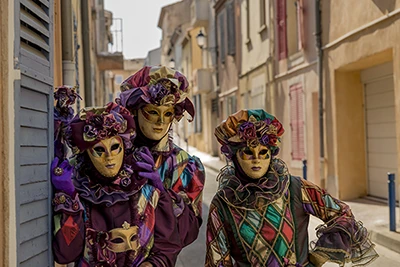 Events and Festivals
Events and Festivals Fashion and Shopping
Fashion and Shopping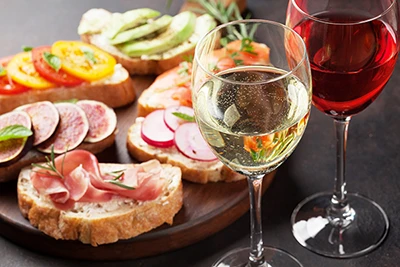 Food and Wine
Food and Wine Nature and Adventure
Nature and Adventure Unique Experiences
Unique Experiences
